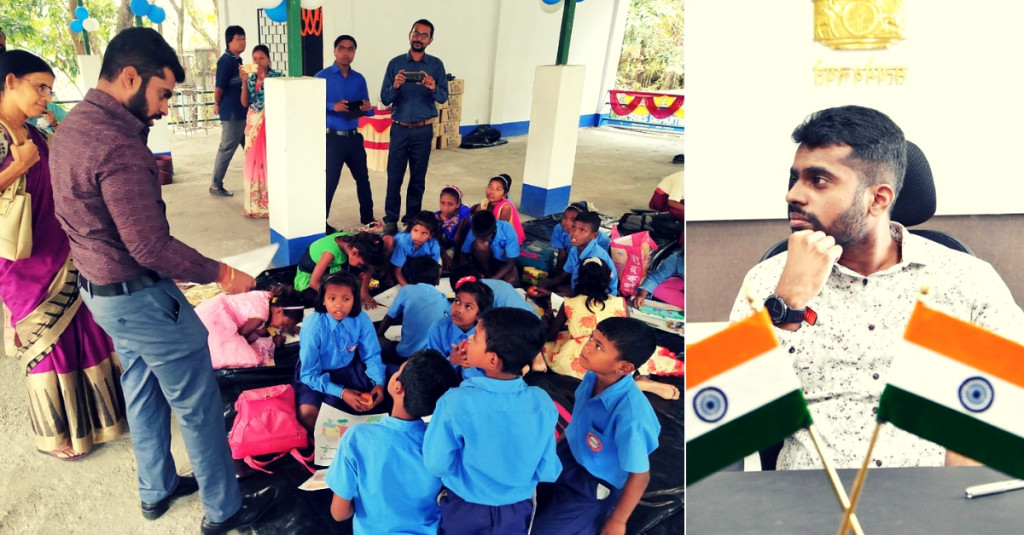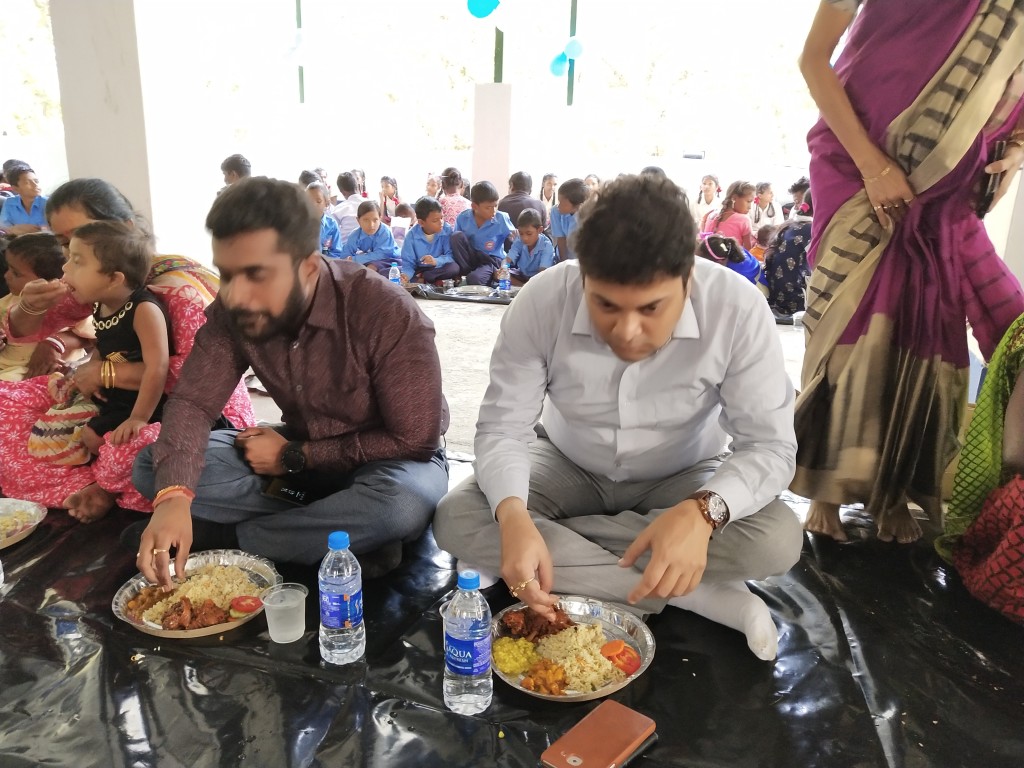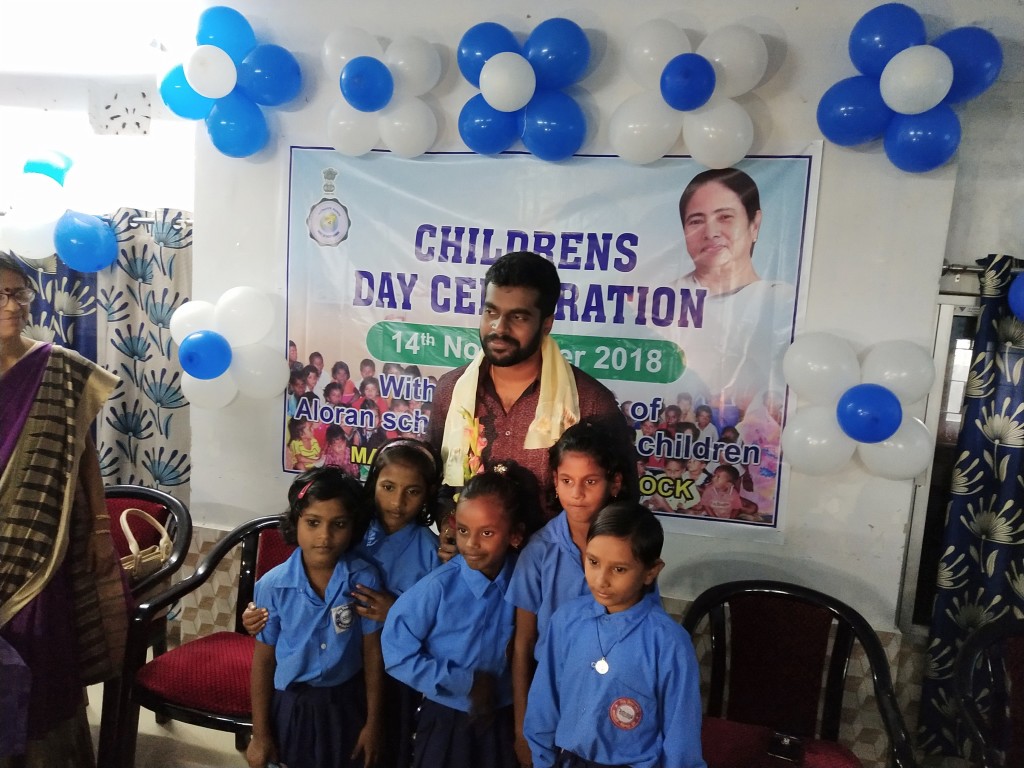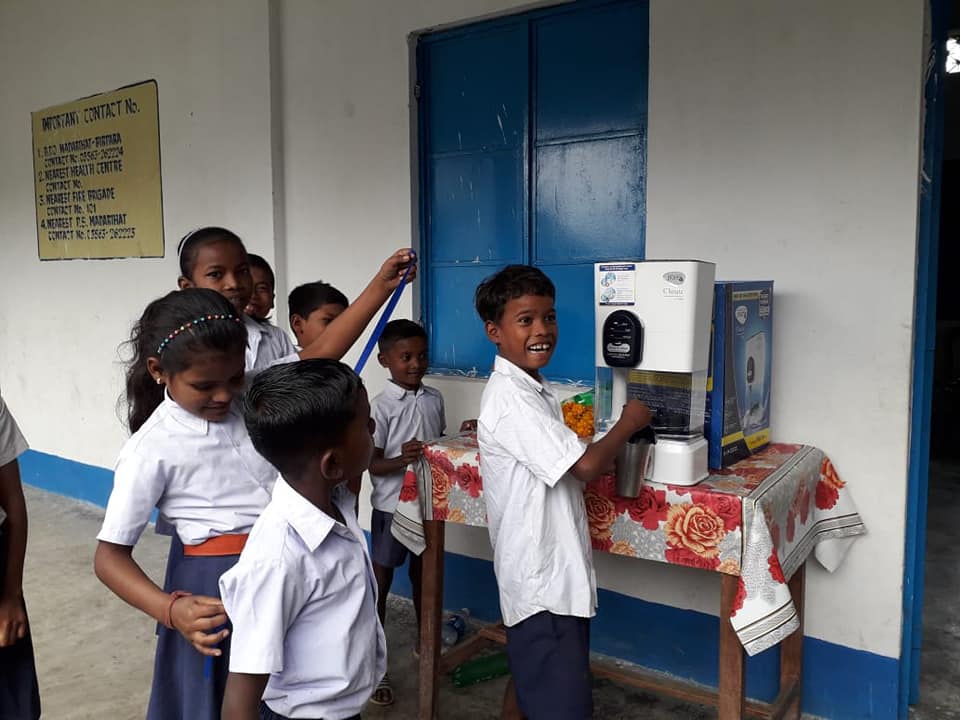Hailing from the state of Kerala which boasts of the highest literacy rate in the country, the cause of education has always been close to 2011-batch IAS Officer, Nikhil Nirmal’s heart.
In August 2018, West Bengal Chief Minister, Mamata Banerjee expressed concerns about the quality of education being imparted to students in the state. At the time, the young officer, who was posted as the District Magistrate of Alipurduar, came up with an innovative idea—the ‘Aloran’ initiative.
What started as a personal project by the bureaucrat, has impacted the lives of over 20,000 students across 73 schools in the last three months.
These students are children of labourers who work in the backward and distressed tea garden areas of the district.
In the course of several meetings, the tea garden workers revealed the poor quality education their children were receiving. While 20 of these tea-gardens were categorised as ‘distressed,’ five of them were shut down due to extreme losses.
Uncertain income and employment forced the labourers to take up menial work and manual scavenging. Acute poverty also paved the way for social evils like child trafficking, sexual abuse, child marriage, organ rackets and alcoholism. Many of these kids were pushed into child labour to supplement the family income as well.
The DM realised that only a personal intervention on the part of administration could bring about the much-needed change. And that’s how Aloran was born.
Nikhil Nirmal explains the initiative.
“I first started visiting schools without any prior notice, and this step received shocked reactions. I immediately noticed several problems—attendance was low, teachers wouldn’t turn up, and there was very little vigilance from the education department. However, we realised that they couldn’t be blamed because they were themselves grappling with a severe shortage of officers. For 840 schools in 11 circles, they had only four Sub-Inspectors.”
The bureaucrat decided to take matters in his own hands, not by just visiting the schools, but also checking the quality of mid-day meals, by eating with the students and evaluating learning outcomes.
Kickstarted on Teacher’s Day in 2018, the Aloran Initiative is running in closed and ‘stressed’ Tea Garden areas in 73 schools of the Alipurduar District—specifically in five blocks of Alipurduar I, Falakata, Kalchini, Kumargram and Madarihat.
How does the initiative work?
A ‘zero-cost’ model, government officers of various ranks including the Deputy Magistrate, Deputy Collector, and extension officers visit these 73 schools every two weeks.
They keep a close check on the attendance of students and teachers, check the quality and quantity of mid-day meals and infrastructure and sanitation facilities.
“The prime motivation for these kids to even come to the school is the mid-day meal because many of them cannot afford a proper meal at home. So, we pay special attention to the quality and quantity of food being served.
If a student is noticed to be absent for more than ten days in a month, the officers also visit their home and have a one-on-one discussion with their parents explaining the importance of education. Many times, when the kid is absent for a long haul, there is a fear that they may have been trafficked as the district shares a border with Bhutan,” Nikhil explains.
He adds how these government officers are referred to as ‘mentors’ and not ‘inspectors.’
“The role of an inspector is to only visit, inspect and file a report to his superiors. But we aim to become mentors to these students and help them explore their creativity and chase their dreams.”
The initiative that has been running for the last three months, without any assistance from any third parties like a private agency or NGOs has already seen an impact.
“Many officers have walked up to me and told me what a refreshing and positive experience it is to interact with the students one day in a week.”
The district has a system where every school has to send an SMS to say that the mid-day meal is running, and this gets registered on an everyday basis by the Central government. The district that once saw results as low as 35 per cent (with respect to the percentage of active MDMs) has shown a rise of 95 per cent within three months. Other results reflect in the steady improvement of student attendance. The teachers too have started coming in regularly.
The government has also passed a circular to ensure that the students in these distressed areas don’t go hungry during the Pujo week when most schools and government institutions are shut for 20 days. Additionally, schools under the Aloran initiative run midday meals on all days, including public holidays.
The personal visits by government officers have ensured that issues like regular wear and tear, repairs and infrastructure building in these schools are looked into, immediately.
“Many times in schools closer to the forest, it has been observed that wild animals enter the premises and damage the property. So our visits ensure that these issues are attended on priority,” says Nikhil.
Through CSR initiatives, RO water purifiers have been installed in the schools to ensure clean and safe drinking water for the students.
In addition to these amenities, the initiative is also helping needy students avail of government schemes they are entitled to.
A classic example of this is how a visually impaired student was able to benefit from the Manabik Pension Scheme of the West Bengal government which provides a pension of Rs 1000 per month to disabled persons of any age. Since the girl lacked a disability certificate, she couldn’t avail of it earlier. However, the administration referred her to the nearest hospital, acquired a certificate and helped her out.
The DM has also created a WhatsApp group for officers to ensure the smooth functioning, on ground activities, progress and grievances of the initiative. There are monthly review meetings to analyse the progress and brainstorm new ideas to improve the system.
The initiative has also received help from the state government. The North Bengal Development Department has given the district Rs 2 crore to improve school infrastructure per block. Additionally, the Gatidhara scheme, under which the government provides subsidies to vehicle owners who use them as ambulances or to ferry school students, is helping as it is a good alternative to school buses.
The students also get school bags and sports kits. Besides, the vegetative fencing and kitchen garden, apart from providing nutrition, are also serving as livelihood opportunities for their families.
Nelson Mandela had said that “Education is the most powerful weapon which you can use to change the world” and Nikhil believes in weaponising these young with just that.
“I often share with the students how education helped me complete college and crack the civil services and that helped me further impact 20,000 students. Had I worked as a labourer my impact would be limited. So, I encourage them to not to restrict themselves to working in tea gardens or becoming labourers and instead pursue higher goals. To be teachers, engineers, doctors and civil servants.”
He signs off by saying, “Aloran started as a personal initiative, and I hope the officers after me continue it. The true long-term impact of this will reflect 10-15 years down the line when some day, one of these kids walks up to me and tells me, ‘Sir, I have become (career of their choice). and the Aloran initiative in my school helped me reach here.’”
Article Credit : – ThebetterIndia




